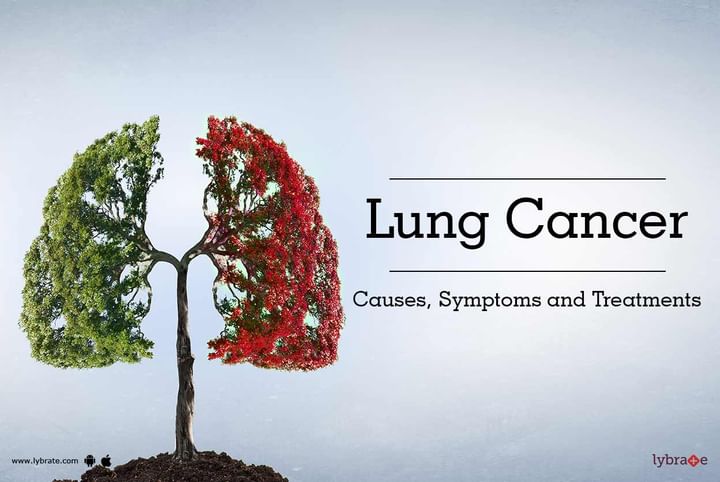Lung Cancer: Causes, Symptoms and Treatments
Lung cancer is the uncontrolled growth of abnormal cells in one or both lungs. These abnormal cells do not carry out the functions of normal lung cells and do not develop into healthy lung tissue. As they grow, the abnormal cells can form tumors and interfere with the functioning of the lung, which provides oxygen to the body via the blood.
Lung cancer is the most common cause of death due to cancer in both men and women throughout the world. According to the U.S. National Cancer Institute, approximately one out of every 14 men and women in the U.S. is diagnosed with cancer of the lung at some point in their lifetime. Lung cancer is predominantly a disease of the elderly; almost 70% of people diagnosed with lung cancer are over 65 years of age, while less than 3% of lung cancers occur in people under 45 years of age.
What Causes Lung Cancer?
The development of lung cancer is strongly associated with cigarette smoking, approximately 90% of lung cancers are attributable to use of tobacco. Pipe and cigar smoking can also cause lung cancer, but the risk is not as high as with cigarette smoking. Tobacco smoke contains more than 4,000 chemical compounds, many of which are cancer causing (carcinogens). Passive smoking, i.e. the inhalation of tobacco smoke by non-smokers who live or work with smokers, is also an established risk factor for the development of lung cancer.
Genetic susceptibility (i.e. family history) may play a role in the development of lung cancer. Other causes of lung cancer include air pollution (from vehicles, industry, and power generation) and inhalation of asbestos fibres (usually in the workplace).
Lung Cancer Symptoms:
Early symptoms and signs of lung cancer:
There may be no symptoms at the onset of the disease. When present, common symptoms of lung cancer may include:
- Coughing: This includes a persistent cough that doesn't go away or changes to a chronic smoker's cough, such as more coughing or pain.
- Coughing up blood: Coughing up blood or rust-colored sputum (spit or phlegm) should always be discussed with your doctor.
- Breathing Difficulties: Shortness of breath, wheezing or noisy breathing (called stridor) may all be signs of lung cancer.
- Loss of Appetite: Many cancers cause changes in appetite, which may lead to unintended weight loss.
- Fatigue: It is common to feel weak or excessively tired.
- Recurring infections: Recurring infections, like bronchitis or pneumonia, may be one of the signs of lung cancer.
Signs of advanced stages of lung cancer: Advanced stages of lung cancer are often characterized by the spread of cancer to distant sites in the body. This may affect the bones, liver or brain. As other parts of the body are affected, new lung cancer symptoms may develop, including:
- Bone pain
- Swelling of the face, arms or neck
- Headaches, dizziness or limbs that become weak or numb
- Jaundice
- Lumps in the neck or collar-bone region
Treatment: Treatment for cancer involves a combination of surgery to remove cancer cells, chemotherapy and radiation therapy to kill cancer cells. Lung cancer is incurable unless complete surgical removal of the tumour cells can be achieved. Surgery is the most effective treatment for lung cancer, but only a few percentage of lung cancers are suitable for surgery i.e. Stage I and II NSCLC and cancer that has not spread beyond the lung.
Radiation therapy may be used for both NSCLC and SCLC and is a good option for people who are not suitable for surgery or who refuse surgery. Chemotherapy is used for both NSCLC and SCLC. Chemotherapy drugs may be given alone or in combination with surgery or radiation therapy. Chemotherapy is the treatment of first choice for SCLC since it has usually spread extensively in the body by the time it has been diagnosed.
Also used in the treatment of lung cancer are targeted therapies. These are drugs (gefitinib and erlotinib) or antibodies (cetuximab, bevacizumab) that block the growth and spread of cancer by interfering with specific molecules involved in tumor growth and progression. They are used in some patients with NSCLC that does not respond to standard chemotherapy.



+1.svg)
